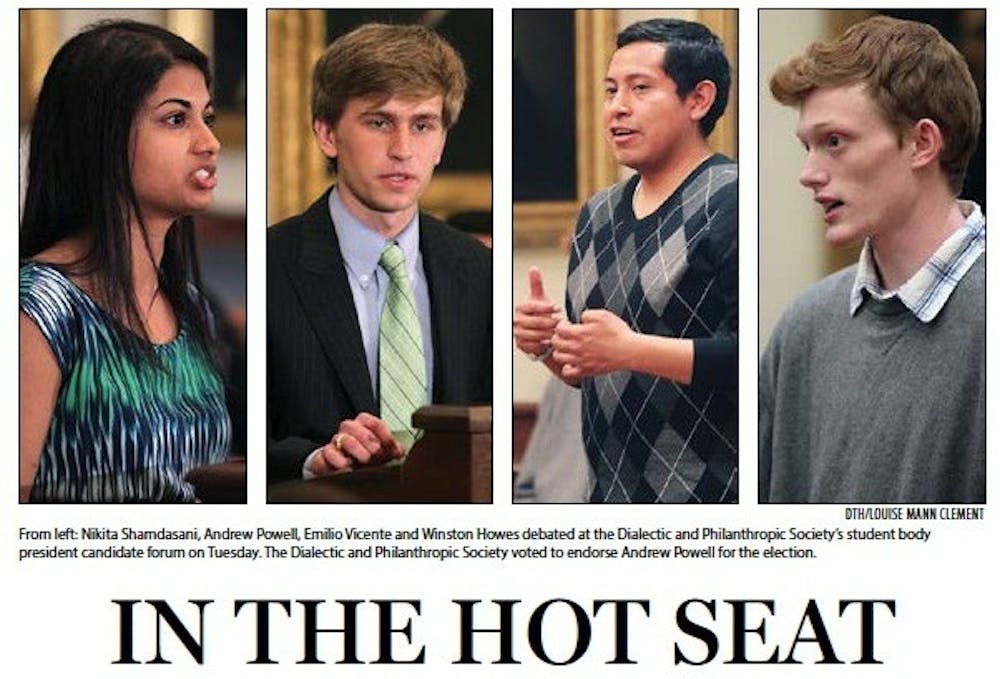“What student government does is that it connects students and issues with the right people, and I would hopefully know who the right people are,” Shamdasani said, adding that she wouldn’t have a learning curve.
Vicente said he has formed relationships with three UNC chancellors, adding that he spoke to former Chancellor James Moeser while he was still in high school.
“I am willing to go above and beyond to show that I am learning the ins and outs of student government,” he said.
When asked what was the greatest challenge facing UNC, Powell, Shamdasani and Howes cited tuition and affordability.
Powell said tuition is 10 times what it was 30 years ago.
“UNC was chartered with providing a high-quality and affordable education for all, and that reputation is in jeopardy,” he said.
Powell said a way to solve this problem lies in his platform, which promotes blended learning models as a cost-cutting mechanism.
Vicente said there is not just one issue that needs to be addressed.
Instead, he said the biggest issue was that students were missing from the conversation.
“If we actually ask and engage students, then we can address tuition, sexual assault and other really important issues,” he said.
Shamdasani said she thinks it is vital to take ideas to the correct people, something she said could happen through the website Neighborland.
“We need to be taking more ideas to the administrators who will be able to carry them out,” she said.
To get the day's news and headlines in your inbox each morning, sign up for our email newsletters.
The candidates were also asked what makes them unique.
Howes said his experience with technology will be helpful for this position. He said certain functions within academic advising could be streamlined by being automated.
“In a lot of ways, (technology) allows me to bypass the bureaucracy,” he said.
When the moderator posed the question of overcrowding in classrooms, Howes said Massive Online Open Courses could be a solution.
Powell spoke about a course registration system he helped bring to the economics department, Smart Registration. It works on the premise that full courses on the first day of class later have empty seats, and that data should be analyzed to take full advantage of them.
He said he would work to use this University-wide.
Vicente said he was not fully equipped to answer the question about overcrowding, but he would attempt to learn as part of his adjustment to the position — an approach he’s taking to most issues.
“We want to sit down with (students) and make sure they are engaged in their part of the system,” he said.
Powell said, if elected, he plans to get to work on the first day of his presidency.
“This University is facing some really big challenges — we know that these issues exist, and the challenge is trying to figure out how to do something about these issues,” he said.
“On day one, I will do everything I can to make that a reality.”
university@dailytarheel.com



